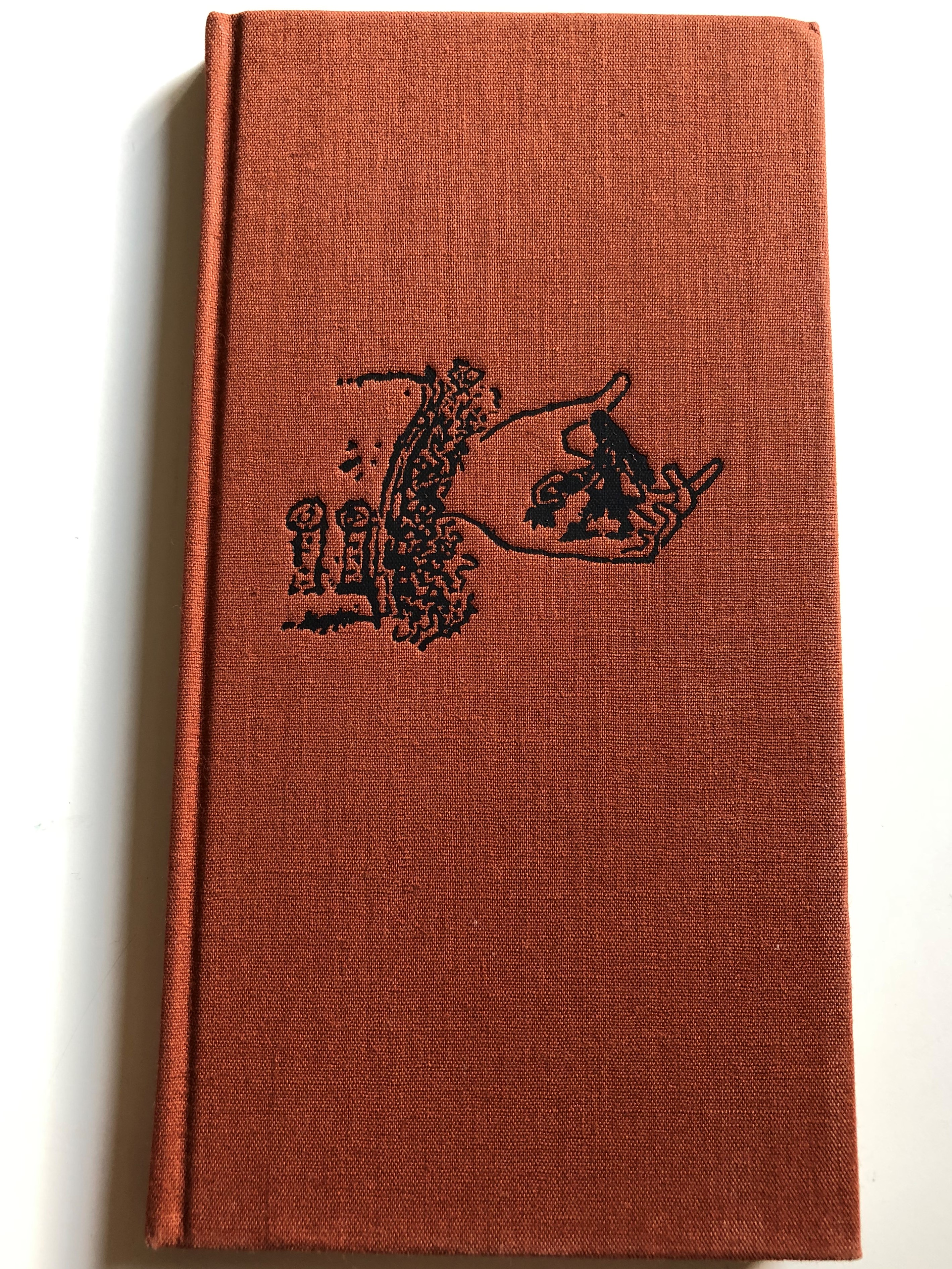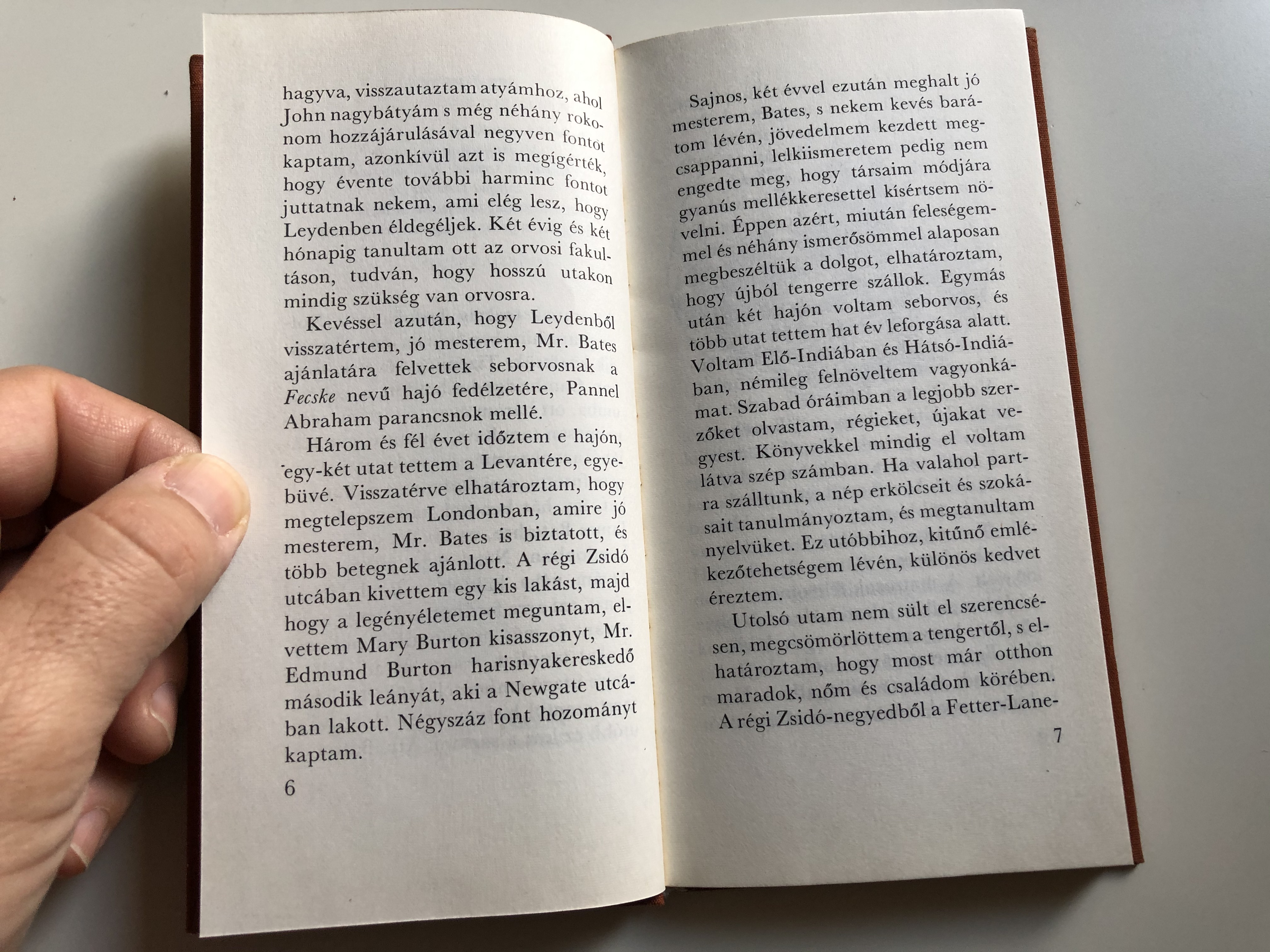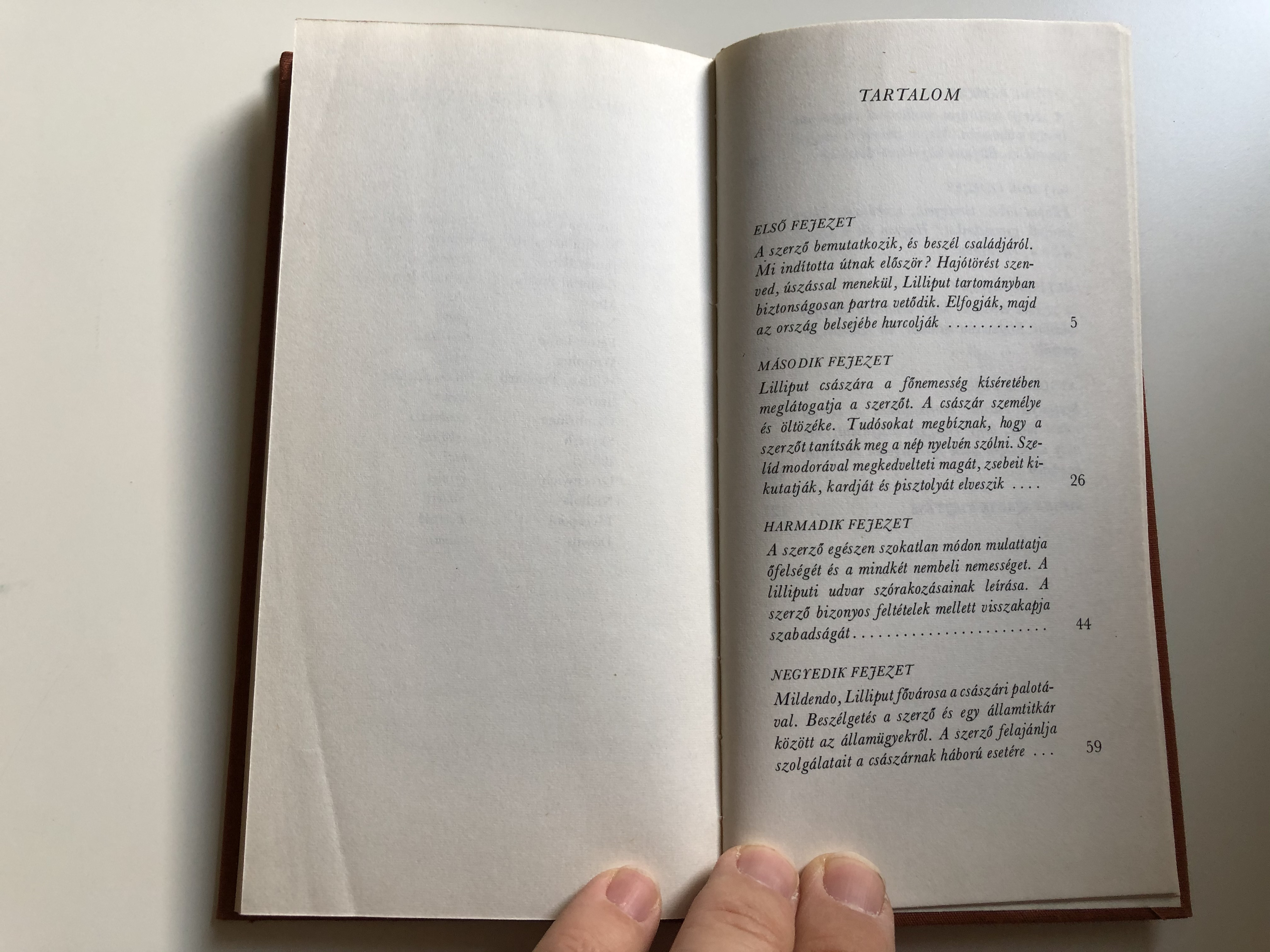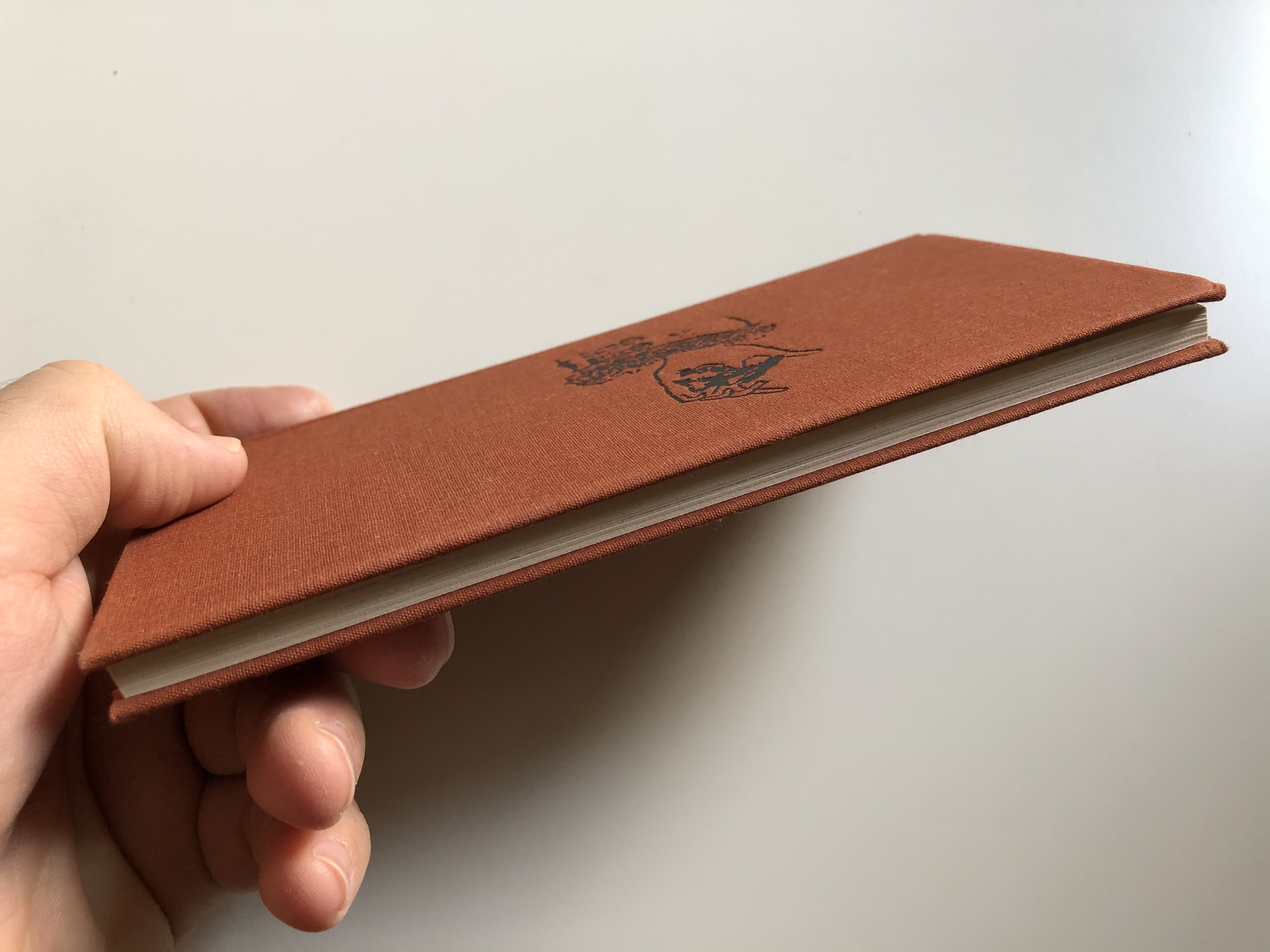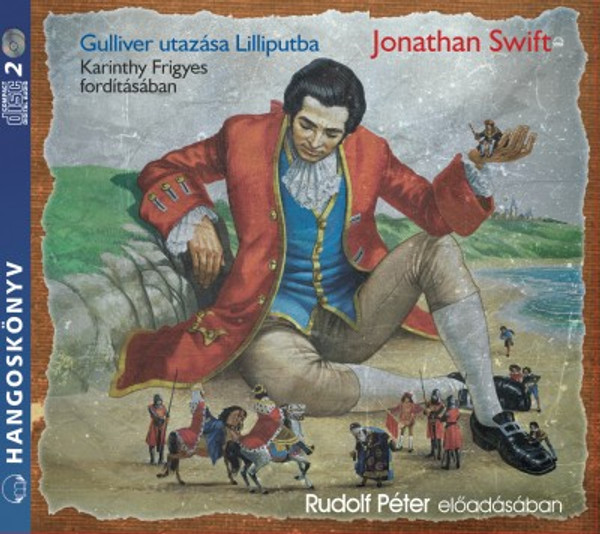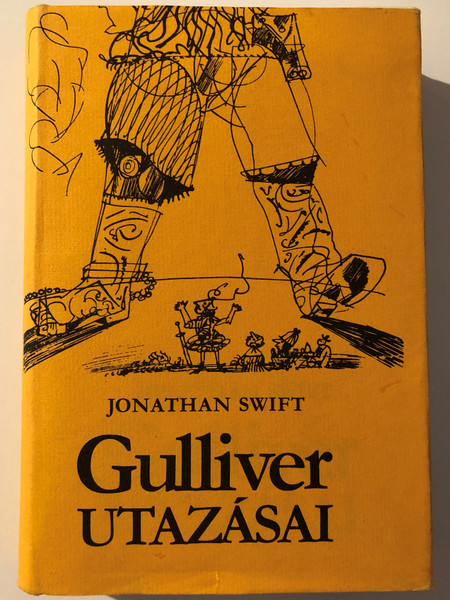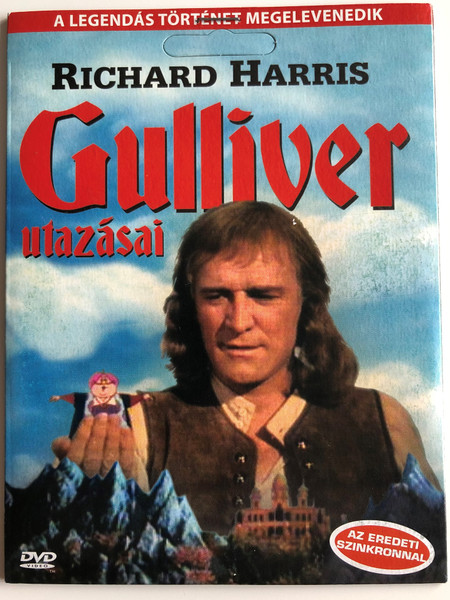Description
Gulliver Utazása Lilliputban – Jonathan Swift Hungarian Edition of Gulliver’s Voyage to Lilliput | Translated by Karinthy Frigyes | Illustrated by Gyulai Liviusz
Product Details | Termékadatok
- Title | Cím: Gulliver Utazása Lilliputban
- Original Title | Eredeti cím: Gulliver’s Voyage to Lilliput
- Author | Szerző: Jonathan Swift
- Translator | Fordító: Karinthy Frigyes
- Illustrator | Illusztrátor: Gyulai Liviusz
- Publisher | Kiadó: Móra Könyvkiadó
- Publication Year | Kiadás éve: 1954
- Format | Formátum: Hardcover / Keménykötés
- Pages | Oldalszám: 120
- Language | Nyelv: Hungarian / Magyar
Overview | Áttekintés
Jonathan Swift’s Gulliver’s Voyage to Lilliput is one of the most beloved satirical adventure tales in world literature. This Hungarian edition, beautifully translated by Karinthy Frigyes, presents the legendary journey of Lemuel Gulliver, who finds himself in Lilliput, a land of tiny inhabitants with grand ambitions.
This edition is further enriched by the captivating illustrations of Gyulai Liviusz, bringing to life the fascinating world of Lilliput. With its humor, social critique, and thrilling adventure, this book is an ideal read for both young readers and literary enthusiasts.
Jonathan Swift Gulliver utazása Lilliputban című műve az irodalom egyik legkedveltebb szatirikus kalandregénye. Ez a magyar kiadás, melyet a híres Karinthy Frigyes fordított, bemutatja Lemuel Gulliver legendás utazását Lilliput földjére, ahol aprócska emberek hatalmas ambíciókkal élnek.
Ezt a kiadást a Gyulai Liviusz lenyűgöző illusztrációi teszik még különlegesebbé, életre keltve Lilliput varázslatos világát. A könyv humora, társadalomkritikája és izgalmas kalandjai miatt fiatal és idősebb olvasók számára egyaránt tökéletes választás.
Key Themes | Főbb Témák
Adventure and Discovery | Kaland és felfedezés
Satire on Politics and Society | Politikai és társadalmi szatíra
Human Nature and Power Struggles | Emberi természet és hatalmi harcok
Fantasy and Imaginative World-Building | Fantázia és képzeletgazdag világalkotás
Why Read This Book? | Miért érdemes elolvasni?
Classic Literature with a Timeless Message | Klasszikus irodalom időtálló mondanivalóval
Beautiful Illustrations by Gyulai Liviusz | Gyulai Liviusz csodás illusztrációival
A Fun Read with Deep Social Commentary | Szórakoztató olvasmány mély társadalmi kritikával
Perfect for Young and Adult Readers | Gyerekeknek és felnőtteknek egyaránt ajánlott
Interesting Facts | Érdekességek
- Jonathan Swift’s Gulliver’s Travels (1726) is one of the most widely read and adapted works of English literature.
- The Hungarian translation by Karinthy Frigyes is considered one of the most brilliant literary adaptations of the original text.
- The Lilliputians, despite their small size, have grand ambitions and political conflicts, mirroring real-world struggles.
- Gyulai Liviusz, one of Hungary’s most renowned illustrators, brings a unique artistic perspective to the story.
About the Author | A szerzőről
Jonathan Swift (1667–1745) was an Irish satirist, essayist, and clergyman, best known for Gulliver’s Travels. His works, filled with wit and sharp social critique, remain highly influential in literature and politics.
Jonathan Swift (1667–1745) ír szatirikus író, esszéista és egyházi személy volt, legismertebb műve a Gulliver utazásai. Írásai szellemesek és éles társadalomkritikát tartalmaznak, így máig jelentős hatást gyakorolnak az irodalomra és a politikára.

























